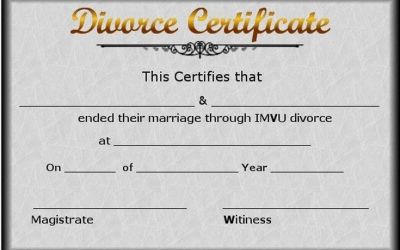
Is a Wali (Guardian) Mandatory for Islamic Nikah in the UAE? Understanding the Role in 2025
Table of Contents ▼
For Muslim couples planning their Islamic Nikah in the UAE, one of the most common questions that has been asked is about the requirement of a wali (guardian) for the nikah ceremony.
This question touches on both religious tradition and legal requirements, making it important to understand clearly as you plan your special day.
In this blog, we are going to look into the details of the requirement of wali during a nikah in UAE.
The Clear Answer: Yes, a Wali is Mandatory for Islamic Nikah in the UAE
According to the UAE’s Personal Status Law, which governs marriage procedures in the Emirates, the presence and consent of a wali is indeed mandatory for a valid Islamic marriage. This requirement aligns with the predominant view in Islamic jurisprudence and is legally enforced throughout the UAE.
But what does this mean for couples planning their nikah?
Understanding the Wali Requirement in Islamic Tradition
The concept of wali for nikah is rooted in Islamic teachings that emphasize family involvement in marriage. In traditional Islamic jurisprudence, a wali serves as both a representative and protector of the bride during the marriage process.

Who Can Serve as a Wali for Islamic Nikah?
Not everyone can fulfill the role of wali. According to Islamic tradition and UAE law, a wali must be:
- A Muslim male relative of the bride
- Of sound mind and mature age
- Known for good character and understanding of religious principles
The order of priority for wali typically follows this established pattern:
- Father (considered the primary wali)
- Paternal grandfather
- Brother
- Paternal uncle
- Other male relatives on the father’s side
This hierarchy reflects the Islamic emphasis on paternal family bonds and the protective responsibility of male relatives toward female family members in matters of marriage.
The Wali’s Role During the Nikah Ceremony
During an Islamic nikah in the UAE, the wali plays several crucial roles:

- Giving formal consent to the marriage
- Participating in the negotiation of mahr (dowry)
- Representing the bride’s interests in the marriage contract discussions
- Physically attending the ceremony to fulfill legal requirements
- Signing the marriage contract as a principal party
The wali’s participation isn’t merely symbolic—it’s a substantive element that affects the legal validity of the marriage under UAE law.
Special Circumstances: When a Court-Appointed Wali Steps In
The UAE legal system recognizes that not every bride will have a suitable male guardian available. In such cases, the court provides a solution by appointing a judge (qadi) to act as wali. This might apply in several situations:
- When a woman has no living male relatives who qualify as wali
- When the natural wali is unreasonably refusing consent to a suitable marriage
- When the natural wali is unavailable (for example, living in another country with no means to attend)
- In cases of conversion to Islam where the woman doesn’t have Muslim male relatives
This provision ensures that the wali requirement doesn’t become an insurmountable obstacle to marriage while still honoring the traditional structure of Islamic nikah.
Can the Wali Requirement Be Waived?
Under UAE law, the requirement for a wali cannot be waived for Muslim women getting married in the country. This applies to:
- UAE citizens
- Resident expatriates
- Visitors getting married in the UAE
The presence of a wali is considered essential to the validity of the marriage contract, not an optional tradition that can be set aside based on personal preference.
For non-Muslim expatriates getting married in the UAE under their own religious or civil laws, different regulations apply that don’t include the wali requirement. However, for Islamic marriages, this requirement remains consistent throughout all emirates.
The Legal Consequences of Marriage Without a Wali
It’s important to understand that attempts to conduct an Islamic marriage without a wali in the UAE will not be recognized legally. Such marriages:

- Cannot be officially registered with UAE authorities
- Do not provide legal protections for either spouse
- May not be recognized for visa or residency purposes
- Could potentially lead to legal complications if the relationship ends
These serious consequences underscore why understanding and properly fulfilling the wali requirement is essential when planning your nikah in the UAE.
Embracing Tradition While Planning Your Perfect Nikah
While navigating legal requirements, remember that your nikah is ultimately a celebration of love and commitment within the beautiful framework of Islamic tradition. The wali’s participation represents family continuity and support as you begin your marriage journey.
At Easy Muslim Wedding, we specialize in helping couples honor these meaningful traditions while creating ceremonies that reflect their unique love stories. Our team understands both the legal requirements and spiritual significance of the wali’s role in Islamic marriage.
Whether you need assistance with documentation, guidance on navigating complex family situations, or complete wedding planning services that honor Islamic traditions, we’re here to make your journey to nikah as smooth and joyful as possible.
Ready to plan your perfect UAE nikah with proper attention to all religious and legal requirements? Visit us and let our experienced team guide you through each step of creating a marriage celebration that honors both tradition and your personal love story.



